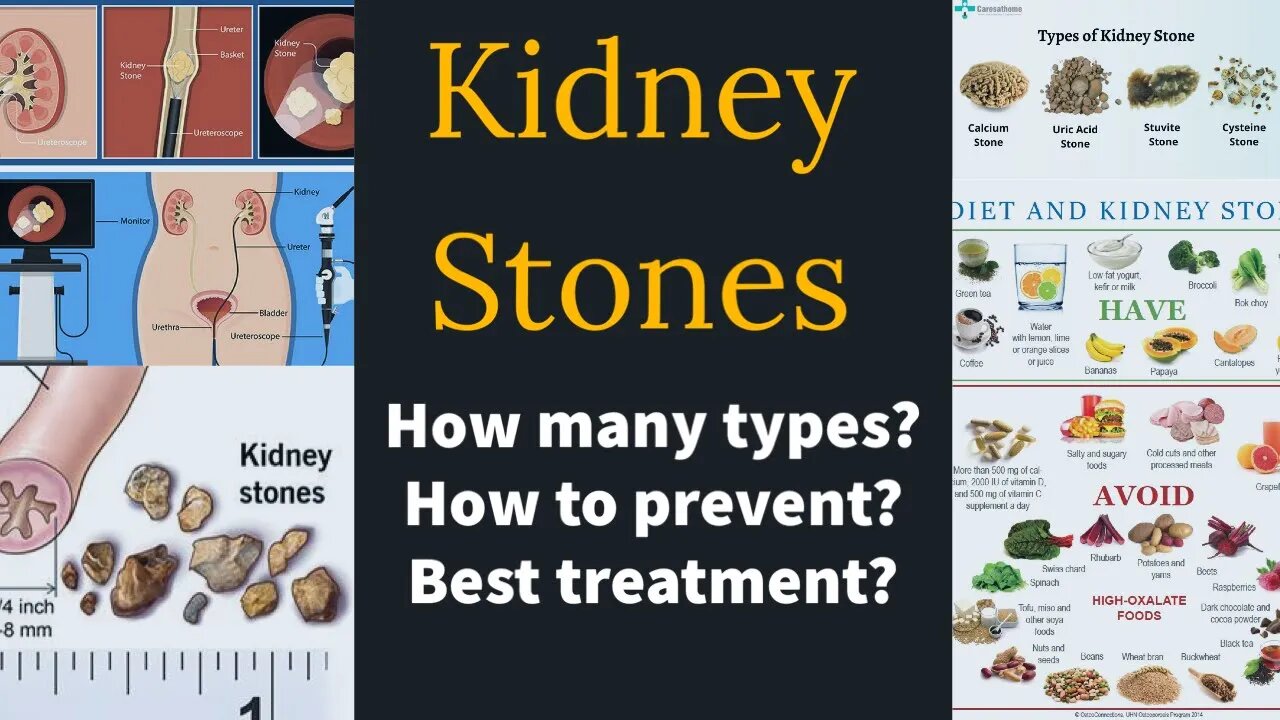Premium Only Content

Kidney stones symptoms, causes, diagnosis & treatment
#kidneystone #kidneystonesymptoms #kidneydisease #kidneystoneproblems #kidneystonetreatment #kidneystonekailaj #hubetabibi
Queries:
kidney stone
kidney stones symptoms
kidney stones causes
kidney stone problems
kidney disease
kidney stones prevention
kidney stones treatment
kidney stones ka ilaj
Kidney stones, or renal calculi, are solid masses made of crystals. Kidney stones usually originate in your kidneys. However, they can develop anywhere along your urinary tract, which consists of these parts:
kidneys
ureters
bladder
urethra
Kidney stones are one of the most painful medical conditions. The causes of kidney stones vary according to the type of stone.
Types of kidney stones
Not all kidney stones are made up of the same crystals. The different types of kidney stones include:
Calcium
Calcium stones are the most common. They’re often made of calcium oxalate (though they can consist of calcium phosphate or maleate). Eating fewer oxalate-rich foods can reduce your risk of developing this type of stone. High-oxalate foods include:
potato chips
peanuts
chocolate
beets
spinach
However, even though some kidney stones are made of calcium, getting enough calcium in your diet can prevent stones from forming.
Uric acid
This type of kidney stone is more common in men than in women. They can occur in people with gout or those going through chemotherapy.
This type of stone develops when urine is too acidic. A diet rich in purines can increase urine’s acidic level. Purine is a colourless substance in animal proteins, such as fish, shellfish, and meats.
Struvite
This type of stone is found mostly in women with urinary tract infections (UTIs). These stones can be large and cause urinary obstruction. They result from a kidney infection. Treating an underlying infection can prevent the development of struvite stones.
Cystine
Cystine stones are rare. They occur in both men and women who have the genetic disorder cystinuria. With this type of stone, cystine — an acid that occurs naturally in the body — leaks from the kidneys into the urine.
Risk factors for kidney stones
The greatest risk factor for kidney stones is making less than 1 litre of urine per day. This is why kidney stones are common in premature infants who have kidney problems. However, kidney stones are most likely to occur in people between the ages of 20 and 50.
Different factors can increase your risk of developing a stone. In the United States, white people are more likely to have kidney stones than black people.
Sex also plays a role. More men than women develop kidney stones, according to the National Institute of Diabetes and Digestive and Kidney Diseases (NIDDK).
A history of kidney stones can increase your risk. So does a family history of kidney stones.
Other risk factors include:
dehydration
obesity
a diet with high levels of protein, salt, or glucose
hyperparathyroidism
gastric bypass surgery
inflammatory bowel diseases that increase calcium absorption
taking medications such as triamterene diuretics, antiseizure drugs, and calcium-based antacids.
-
 1:19:57
1:19:57
Awaken With JP
6 hours agoThanksgiving for America Special - LIES Ep 67
69.1K21 -
 3:58
3:58
Blackstone Griddles
23 hours agoLeftover Turkey with White Country Gravy
12.5K1 -
 42:19
42:19
Lights, Camera, Barstool
9 hours agoDoes 'Glicked' Meet The Hype? 'Gladiator II' And 'Wicked' Reviews
11.9K2 -
 LIVE
LIVE
MTNTOUGH Fitness Lab
2 hours agoRandy Newberg's Shot of a Lifetime: The Intense 5-Second Window for a Trophy Ram | MTNT POD #91
134 watching -

World Nomac
9 hours agoThe side of Las Vegas they don't want you to know about
3.25K -
 1:56:32
1:56:32
TheSaf3Hav3n
3 hours ago| CALL OF DUTY: BLACK OPS 6 - NUKETOWN | GET IN HERE!! | #RumbleTakeOver |
9.65K -
 LIVE
LIVE
MissesMaam
6 hours agoMY FAVORITE ARTIST IS FINALLY IN FORTNITE 💚✨
115 watching -
 2:02:34
2:02:34
The Quartering
4 hours agoTrump Tariffs Immediately Work, Thanksgiving Cost Insanity, Hollywood Actor In Psych Ward From Trump
75.3K26 -
 36:54
36:54
Stephen Gardner
3 hours ago🔥I can't believe what Happened To Trump's insider pick!
16.9K33 -
 27:59
27:59
LumpyPotatoX2
19 hours agoRumble Gaming Talk W/Chris Pavlovski & SilverFox - #RumbleGaming
36.9K7